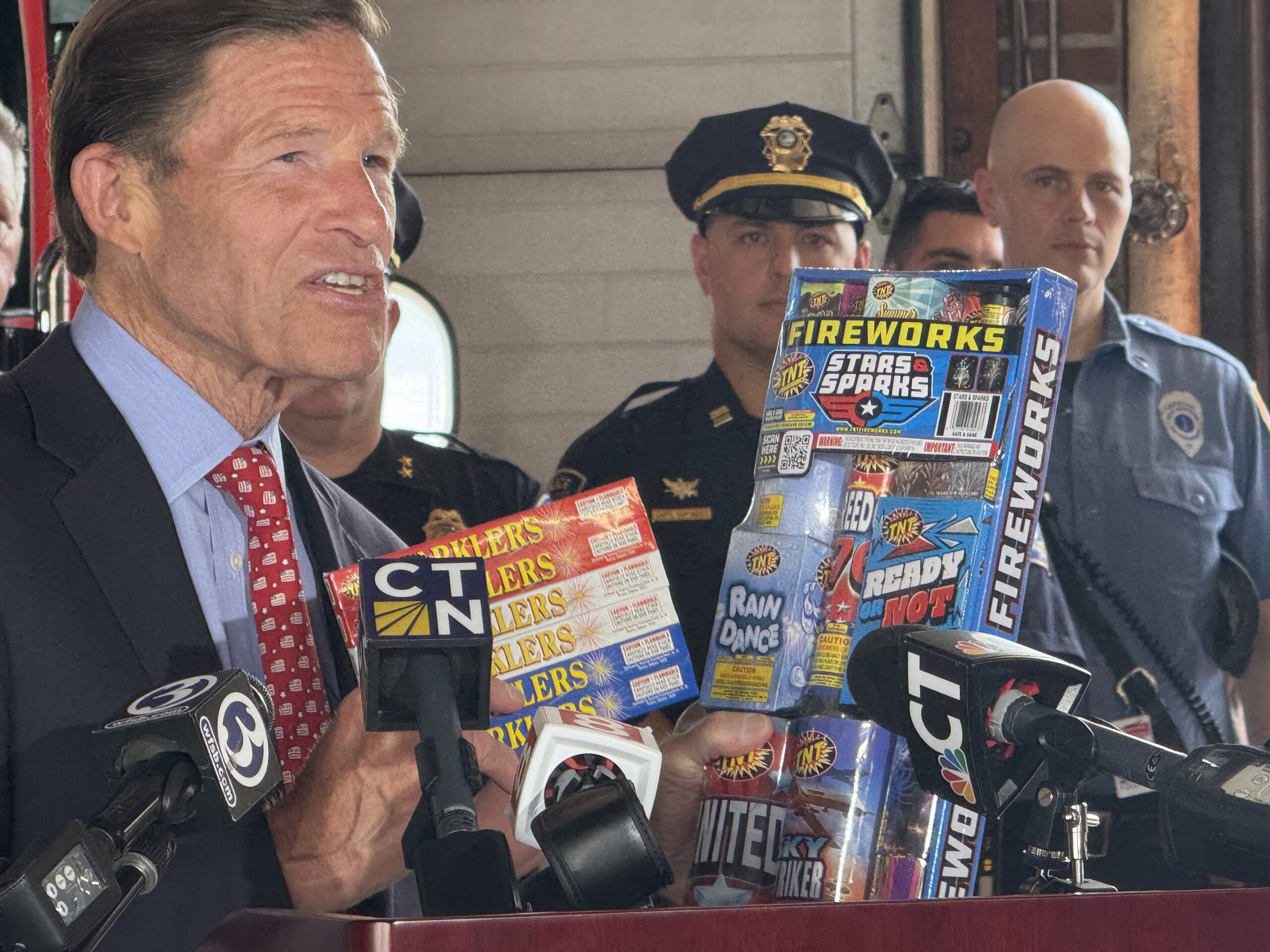Leadership Says No Special Session on Youth Crime

Audio By Carbonatix

State Capitol building. Courtesy of CTNewsJunkie.com
Republicans are calling for a special session to toughen policies on youth crime, while Democrats say that there is not a quick fix and more time is needed to address solutions in a meaningful way.
By Hugh McQuaid, CTNewsJunkie.com
Legislative leaders have no immediate plans to convene a special session on youth crime, spokesmen for House and Senate Democrats said Thursday in response to Republican calls this week for “immediate action.”
An ongoing spike in youth crime centered on car theft has drawn increasing concern since the outset of the coronavirus pandemic last year. However, a Tuesday night incident in which the driver of a stolen Audi struck and killed a pedestrian on a New Britain sidewalk provoked a call for legislative action from House Republicans.
“To say that this issue has reached a boiling point would be a gross understatement,” House Minority Leader Vincent Candelora said in a press release. “As residents have begun their own policing to protect their property and lives, and now with a loss of a life in New Britain, it should be clearer than ever to Democrats that the legislature must tackle this issue head-on as quickly as possible.”
According to New Britain police, the driver of the stolen car was a 17-year-old boy whose name could not be disclosed due to his age. In their statement, police described him as a repeat offender with 13 arrests in less than four years and prior charges including assault with a knife, car theft, and drug charges.
Republicans called on the legislature to convene and pass policies to crack down on youth crime. The proposals included easing the process for police to hold youth offenders beyond a six-hour limit, involving the Department of Children and Families in car theft cases and lowering the threshold for a court to declare a minor a public safety risk.
“Nobody serving in the legislature, and certainly nobody on the Republican side of the aisle, wakes up each day rooting for detentions and convictions, but the fact of the matter is that young people understand that they live in a state where they’ll face few consequences for their criminal behavior,” Rep. Rosa Rebimbas, R-Naugatuck, said.
“We are always willing to meet and talk about informed and viable solutions to address an issue that is incredibly complex and cuts across social, economic and criminal justice policies,” Ritter and Rojas said in a joint statement. “It will take time and hard work from every corner of the juvenile justice system, state and local government, and law enforcement to find meaningful solutions.”
In a phone interview, Sen. Gary Winfield, a New Haven Democrat who is co-chair of the Judiciary Committee, said he knew of no immediate plans to reconvene. Winfield said he was open to hearing the policies Republicans were seeking.
“The only thing I would remind people is: we have kids at [Manson Youth Institution]. We have kids in detention. It’s not that you can’t put kids in the system,” Winfield said. “So as we’re looking at these potential new laws, we should be asking: not just how do we put kids in the system, but why kids like that weren’t in the system.”
Auto thefts – including thefts by youth offenders – have risen sharply since the pandemic. Partway through 2018, the judicial branch began tracking motor vehicle theft cases referred to juvenile courts. There were 738 stolen car arrests involving minors in 2019, the first full year with statistics available. The number grew by 23% to 910 in 2020. Forty-two percent of those arrests were first offenses, according to the judicial branch numbers.
Ken Barone, project manager at Central Connecticut State University’s Institute for Municipal and Regional Policy, said the spike in stolen cars was not unique to Connecticut. He said that similar increases have occurred across the country in both red and blue states. European countries have also seen increases at similar rates since the pandemic struck, Barone said.
“There seems to be a narrative out there: ‘Well Connecticut got really soft on juveniles and therefore we have this unique problem.’ We just need to stop with that narrative because we know that car theft – particularly juvenile car theft – is up everywhere,” Barone said. “It’s largely linked to the pandemic and linked to a reduction in services for that population.”
In general, car thefts in Connecticut have been trending downward since they peaked in 1991 at more than 26,000 cases that year, Barone said. The lowest year on record was 2019, just prior to the pandemic, when there were fewer than 6,000, he said.
Barone said he expected a natural decline in auto theft and youth crime as the schools, programs, and other services for minors that were disrupted by the pandemic resume their normal operations.
“I don’t have all the answers but I know it’s much more complicated than the rhetoric out there,” Barone said. “It feels like we’re heading towards a potential political overreaction, which might make people feel good, but the question is – is it good long term policy? Will it actually address the issue at hand? I guess we’d have to wait and see what they craft.”
Republished with permission from CTNewsJunkie.com, all rights reserved.
Like what you see here? Click here to subscribe to We-Ha’s newsletter so you’ll always be in the know about what’s happening in West Hartford! Click the blue button below to become a supporter of We-Ha.com and our efforts to continue producing quality journalism.



